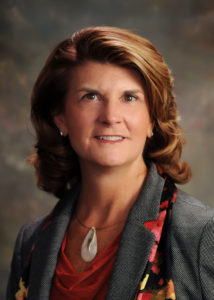
Morse: Bring the rain
State Senate President Chuck Morse brought forward a proposal to remove the cap on the state’s Revenue Stabilization Account, otherwise known as the Rainy Day Fund. Removing the cap will allow the state to put more money into the fund.
Currently, deposits are limited to five percent of the state’s revenue in any given fiscal year. In introducing the measure, Morse said the cap, established in 1 9 9 3, was unknown to lawmakers. It’s the latest in a series of moves by Morse and the Senate to rebuild the famished fund following warnings by State Treasurer Catherine Provencher and a downgrade of the state’s bond rating two years ago.

Provencher: Warned years ago
In a statement released after introducing the measure, Morse admitted the state’s not currently in danger of hitting the cap, but that given the critical shortage of funds, there’s only nine million dollars in a fund that should have one hundred forty, he wanted to ensure there were no obstacles to building it quickly. Morse pointed to recently enacted legislation that requires the first ten percent of all funds received by the state in a settlement above one million dollars be deposited into the Rainy Day Fund and the recent lawsuit settlement with Exxon over M T B E as examples that could bump into the cap and harm the state’s ability to build its emergency reserves.

Hassan: Wants to spend projected surplus
On a related item, New Hampshire House Majority Leader Dick Hinch, Republican from Merrimack, released a statement in response to a letter from Governor Margaret Wood Hassan to Morse and Speaker Shawn Jasper regarding proposals on how to allocate potential surplus revenue in this year’s budget. Hinch criticized Hassan’s veto of the budget, saying it delayed much needed funding to combat the drug crisis and said the legislature needed quote
“to be reassured that there is a management plan in place to make sure the currently allocated resources are being fully utilized and are producing positive outcomes before we commit to a laundry list of other spending.” End quote.
You may recall that the Department of Health and Human Services turned back a chunk of change more than sufficient to wipe out the department’s waiting list of developmentally disabled folks in need of services.

Hinch: House already looking into it
Hinch said the House Ways and Means and Finance committees were already in the process of reviewing several of the issues raised in the governor’s letter, but that the state’s revenue position for the biennium remained to be seen and that legislators weren’t going to simply rubber stamp the governor’s proposals. Said Hinch quote:
We are fully committed to allocating the necessary resources to continue to combat the drug crisis, but we shouldn’t play shell games in how we pay for them.
News from our own backyard continues after this.

Crosdale: We have the pipes
Residents in Manchester’s South End, concerned about the quality of their water, attended a meeting with city and state officials last night. They were assured that water provided by the Manchester Water Works was not affected by the Perfluorooctanoic Acid from the Saint Gobain plant in Merrimack, but that at least one private well in the tail section of the city registered the contaminant. Thirty homeowners on private wells are receiving bottled water from the state. Water Works Director Phil Croasdale said the city had water mains in the area that could easily provide water to the affected properties. Mayor Ted Gatsas announced he’d opened discussions with Saint Gobain officials about their paying to extend city water service to those with contaminated wells. We’ll be sure to ask the mayor about that this morning.

O’Maley: Opposes cuts
At last night’s meeting of the Manchester Board of School Committee’s Committee on Building and Sites, city Facilities Manager Kevin O’Maley urged the committee not to go along with proposed cuts made to the city’s deferred maintenance plan offered by Superintendent Debra Livingston at the board’s last meeting. He said ditching the program would have a devastating impact on the condition of the district’s buildings. The committee approved a motion by at-Large Committee Member Rich Girard to oppose the cuts, which Livingston announced she also did not support.

Avard: Pre-mature preschool Proposal
The committee also received an informational presentation on a proposal to use available space at West High School to house three Head Start classrooms. Ward Ten Committee Member John Avard opposed the proposal saying that no space should be programmed until redistricting questions had been answered. Girard agreed and also objected to the superintendent working with a Washington D. C. based political action committee, one that spent heavily in races for alderman and school board, to develop the proposal. The committee took no action on the matter.

MSD: Redistricting committee plods along
The Special Committee on Redistricting also met last night. It set a time line for redistricting that would continue data collection until the end of the school year, after which they would evaluate proposals already made to redistrict the city. The goal would be to narrow down and refine proposals that could be presented to the public for feedback by early October. Final plans would be presented to the Board of School Committee by their first meeting in January. The committee directed administrators to contact student councils and parent teacher groups to solicit feedback for surveys that could be sent to all parents and middle and high school students. Administrators will also identify two teachers from the elementary, middle and high school levels to develop a survey for teachers.
That’s news from our own backyard! Girard at Large hour ___ is next!
[soundcloud url=”https://api.soundcloud.com/tracks/261149407″ params=”auto_play=false&hide_related=false&show_comments=true&show_user=true&show_reposts=false&visual=true” width=”100%” height=”450″ iframe=”true” /]


